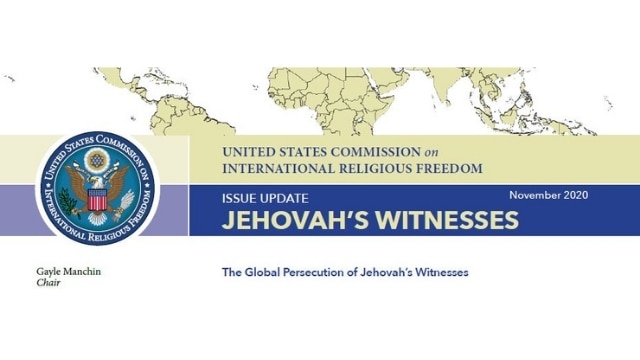エホバの証人に関するMIVILUDESの報告書の一部をフランスの行政裁判所が名誉毀損と判断
パリ行政裁判所は,エホバの証人が児童への性的虐待を当局に報告しない,あるいは子どもに教育を受けさせないようにしているとの主張は「事実誤認」と判断。
A magazine on religious liberty and human rights


パリ行政裁判所は,エホバの証人が児童への性的虐待を当局に報告しない,あるいは子どもに教育を受けさせないようにしているとの主張は「事実誤認」と判断。


4人の特別報告者が署名した国連の公式文書が,日本に宗教的自由の重大な危機が存在することを初めて認めた。


The anti-cult campaigns following the assassination of Shinzo Abe generated not only hate speech but physical violence as well. Two women tell their stories.


Valstybės pripažinimas religinėms organizacijoms nesuteikiamas remiantis argumentais, kuriuos jau atmetė Europos Žmogaus Teisių Teismas ir kiti teismai.


De Parijse administratieve rechtbank heeft geoordeeld dat het ‘feitelijk onjuist’ is te beweren dat Jehovah’s Getuigen gevallen van seksueel misbruik van kinderen niet aan seculiere autoriteiten melden, of dat ze kinderen ontmoedigen onderwijs te volgen.


Naar aanleiding van een onderzoek door de Open Universiteit heeft de minister van Justitie en Veiligheid [sic] aan de Tweede Kamer meegedeeld dat actie ondernemen tegen ‘sociale uitsluiting’ in strijd is met de godsdienstvrijheid en niet reëel.


Enhanced state recognition was refused to the religious organizations based on arguments that have already been rejected by the courts, including the European Court of Human Rights.


For the first time, an official UN document signed by four Special Rapporteurs acknowledges the existence of a major religious liberty crisis in the country.


In een rapport van de Amerikaanse Commissie voor Internationale Godsdienstvrijheid wordt de vervolging van de Getuigen een wereldwijd fenomeen genoemd.
CESNUR
Via Confienza 19
10121 Torino
Italy
info@bitterwinter.org